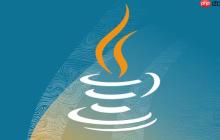-

- Spring Cloud断路器Resilience4j配置
- Resilience4j比Hystrix更优的原因在于其轻量级设计、反应式友好、模块化结构及持续活跃的社区维护。1.Resilience4j默认使用信号量隔离,避免线程池管理开销,更适合高并发和反应式框架;2.提供断路器、限流器、舱壁、重试、超时等多种独立策略,配置灵活;3.与Micrometer、Prometheus等集成实现强大监控能力;4.社区活跃,持续更新适配现代云原生架构,而Hystrix已停止更新。
- 后端开发 . spring-boot 829 2025-07-03 16:45:02
-

- Spring Boot Actuator监控详细配置指南
- SpringBootActuator的监控接口需通过权限控制、网络隔离、HTTPS加密及限制暴露端点等方式安全配置。首先,结合SpringSecurity配置拦截规则,仅允许特定角色或IP访问敏感端点;其次,将Actuator部署在内部网络或通过堡垒机访问,避免公网暴露;第三,启用HTTPS确保通信安全;第四,按需暴露必要端点,而非无差别开放全部接口。此外,可自定义HealthIndicator扩展健康检查逻辑,并利用healthgroups划分核心与非核心服务状态,实现更细粒度的健康监测。
- 后端开发 . spring-boot 471 2025-07-03 16:01:01
-

- Java怎样实现WebSocket?实时通信开发教程
- Java实现WebSocket主要有两种方式:原生API和SpringBoot集成。1.使用原生JavaWebSocketAPI时,需引入Tyrus依赖,通过@ServerEndpoint定义服务端端点,并实现@OnOpen、@OnMessage等回调处理连接与消息。2.在SpringBoot中集成则更便捷,添加spring-boot-starter-websocket依赖后,配置WebSocketConfig注册Handler,并可通过注入Bean实现业务逻辑。3.常见问题包括URL错误、端点
- 后端开发 . spring-boot 692 2025-07-03 15:49:02
-

- Spring Boot整合RocketMQ事务消息教程
- SpringBoot整合RocketMQ事务消息的核心在于利用其两阶段提交机制解决分布式系统中的数据一致性问题。1.引入RocketMQSpringBootStarter依赖简化配置;2.在application.yml中配置NameServer地址和生产者组;3.实现RocketMQLocalTransactionListener接口,重写executeLocalTransaction和checkLocalTransaction方法处理本地事务及状态回查;4.在业务代码中使用RocketMQT
- 后端开发 . spring-boot 200 2025-07-03 15:27:02
-

- Java操作Etcd实现配置管理的完整指南
- Etcd在Java配置管理中的核心优势体现在强一致性、Watch机制、租约功能、版本控制与事务支持。①强一致性基于Raft协议,确保各服务实例获取最新且一致的配置;②Watch机制实现事件驱动的实时更新,降低资源消耗;③租约用于管理临时性配置,支持自动过期;④版本控制支持历史查询与回滚,事务保障多配置项原子性更新。
- 后端开发 . spring-boot 611 2025-07-03 15:01:01
-

- 如何防止XSS攻击?HTML过滤方法
- HTML过滤通过解析、遍历、净化和重构四个步骤阻止XSS攻击,常见策略包括1.白名单策略:仅保留指定标签和属性,如、、href、src等;2.黑名单策略:移除已知恶意标签和属性,但易被绕过。HTML过滤需与其他措施配合,如上下文编码、CSP、输入验证、HTTP-onlyCookie等。选择库时应考虑安全性、性能、可配置性、易用性、社区支持及维护成本。
- 后端开发 . spring-boot 281 2025-07-03 13:49:04
-

- 解决Spring Cloud Auth Service配置加载异常:Spring Boot版本兼容性实践
- 在SpringCloud微服务架构中,AuthService在启动时可能因SpringBoot版本不兼容而导致配置加载失败,报错Unabletoloadconfigdata。本文将深入探讨此问题,并提供通过统一服务间SpringBoot版本来解决配置加载异常的实用方法,确保微服务系统稳定运行。
- 后端开发 . spring-boot 495 2025-07-03 13:44:18
-

- Log4j2日志框架详细配置与使用教程
- Log4j2是Java中强大灵活的日志框架,适用于记录程序运行信息、排查问题和分析性能,尤其在分布式系统中表现优异。1.Log4j2通过异步机制提升性能,将日志事件生成与写入解耦,采用“生产者-消费者”模式实现非阻塞、高吞吐量的日志处理;2.配置Log4j2需引入Maven依赖(log4j-api、log4j-core、log4j-slf4j2-impl),并在classpath下放置log4j2.xml文件定义Appenders和Loggers;3.使用SLF4J门面调用Logger对象输出日
- 后端开发 . spring-boot 1092 2025-07-03 13:35:01
-

- 解决Spring Cloud Auth Service配置加载失败:版本兼容性问题与实践
- 本文深入探讨SpringCloud微服务架构中,AuthService在启动时遇到IllegalStateException,提示无法从ConfigServer加载配置数据的常见问题。该问题通常源于SpringBoot版本不一致导致的配置加载机制兼容性故障。教程将提供详细的解决方案,即通过统一服务间的SpringBoot版本来消除此兼容性障碍,确保服务顺利启动并正确加载配置。
- 后端开发 . spring-boot 440 2025-07-02 22:02:01
-

- Spring Cloud微服务中Auth Service配置加载异常的排查与解决:版本不一致问题
- 针对SpringCloud微服务架构中AuthService启动时遇到的“Unabletoloadconfigdata”配置加载异常,本文深入分析了由SpringBoot/Cloud版本不一致引发的IllegalStateException。教程将详细指导开发者通过统一各服务间的Spring版本来彻底解决此问题,确保服务间兼容性与配置的正确加载,从而保障微服务集群的稳定运行。
- 后端开发 . spring-boot 692 2025-07-02 21:42:12
-

- Spring Cloud认证服务配置加载失败:版本兼容性解决方案
- 本文针对SpringCloud微服务架构中,认证服务(AuthService)启动时报错“无法从配置中心加载配置数据”及“文件扩展名不被任何PropertySourceLoader识别”的常见问题,深入分析其根本原因——SpringBoot版本不兼容性,并提供详细的解决方案。通过统一微服务组件的SpringBoot版本,可以有效解决因配置解析或通信协议差异导致的此类问题,确保服务顺利启动和稳定运行。
- 后端开发 . spring-boot 877 2025-07-02 21:26:19
-

- 解决Spring Cloud微服务中Auth服务配置加载异常:版本兼容性深度解析
- 本文深入探讨了SpringCloud微服务架构中,Auth服务启动时遇到“Unabletoloadconfigdatafrom'configserver'”及“FileextensionisnotknowntoanyPropertySourceLoader”IllegalStateException错误的根源与解决方案。虽然错误信息指向文件扩展或目录问题,但实际往往是SpringBoot版本不兼容所致。教程将通过实际案例,指导如何通过统一SpringBoot版本来解决此类配置加载异常,并强调微服
- 后端开发 . spring-boot 989 2025-07-02 21:24:34
-

- 如何在Java中进行异常的日志记录,有哪些工具可以使用?
- 在Java项目中记录异常信息应使用日志框架结构化记录以确保可追踪性。首先,在catch块中使用logger.error记录异常信息和堆栈,而非e.printStackTrace;其次,通过全局异常处理器统一处理未捕获异常;第三,记录上下文信息辅助问题复现;常用框架包括Logback、Log4j2和JUL;日志应包含异常类型、错误消息、完整堆栈及上下文数据,并传入Throwable对象确保信息完整。
- 后端开发 . spring-boot 291 2025-07-02 18:23:01
-

- 怎么用豆包AI帮我生成API文档 用AI自动从代码生成专业文档的技巧
- 豆包AI可通过提供明确信息与指令辅助生成专业API文档。1.准备好接口路径、请求方法、参数、响应格式、认证方式等基础信息,或直接提供代码片段以便自动识别接口逻辑;2.使用清晰提示词如“生成API文档”“包含请求方式、参数说明、返回示例”等引导输出规范内容;3.可优化已有文档结构,补充字段类型、必填标识、示例值并按资源分类整理;4.输出文本可复制至Markdown或文档工具形成结构化文档,亦可作为Swagger、Postman等工具的初稿来源。
- 后端开发 . spring-boot 786 2025-07-02 10:20:02
-

- 详解Java类数据共享技术如何加速JVM启动过程
- CDS/AppCDS的核心原理是将JVM启动时所需的类预先处理并存储为共享文件,后续启动时直接加载以节省时间。其通过减少类加载、解析和验证过程显著提升启动速度,尤其适用于微服务等快速启动场景。实际提速效果因应用而异,通常几十到几百毫秒不等,大型应用甚至可达秒级优化。配置流程包括:1.运行应用生成类列表;2.基于列表创建.jsa共享文件;3.启动时指定使用该文件。常见问题有归档失效、动态加载类未包含、内存映射限制、调试复杂化及非万能适用性。除加速启动外,AppCDS还可降低内存占用、减少JIT编译
- 后端开发 . spring-boot 278 2025-07-01 19:52:01

PHP讨论组
组员:3305人话题:1500
PHP一种被广泛应用的开放源代码的多用途脚本语言,和其他技术相比,php本身开源免费; 可以将程序嵌入于HTML中去执行, 执行效率比完全生成htmL标记的CGI要高许多,它运行在服务器端,消耗的系统资源相当少,具有跨平台强、效率高的特性,而且php支持几乎所有流行的数据库以及操作系统,最重要的是





























